WAP experts are engaged in numerous research studies as well as policy analyses that mobilize research tools and comparative work. Below are some examples of such recent research or policy analyses.
Research highlight
Climate
For a broader measure of the social cost of carbon
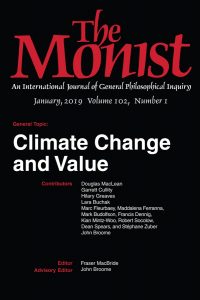
Marc Fleurbaey, Professor at the Paris School of Economics and WAP expert, analyzes the role of ethical values in the determination of the social cost of carbon, arguing that the familiar debate about discounting is too narrow. They show other ethical issues are equally important to computing the social cost of carbon, highlighting inequality, risk, and population ethics.
Wave energy and the example of Ireland

Cathal O’Donoghue, WAP expert and former director of Teagasc’s (the Irelands Agriculture and Food Development Authority), analyzes the impact of wave energy deployment in Ireland on regional development, employment and inequality.
Gender
Gender gaps in old age

Maira Colacce, WAP expert & reseearch at IECON Montevideo, analyzes the gender gap in pension throughout Latin American countries.
Gender gaps in Africa

Prudence Kwenda, Professor of Economic at the University of Witwatersrand (Johannesburg, South Africa) and WAP expert, provides a critical review of the extant literature on gender gaps in employment and wages in sub-Saharan Africa.
Health
–
The non-take-up of public health insurance among undocumented immigrants in France
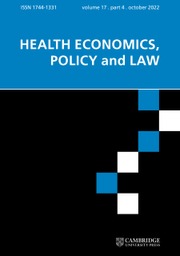
Florence Jusot, WAP expert and Professor of Health Economics at Dauphine University, Paris, studies the State Medical Aid, a public health insurance program that allows undocumented immigrants with low financial resources to access health care services for free. With her coauthors, she shows how the low take-up rate of this program might threaten its efficiency.
–
Measuring changes in physical health and the implication for health policies
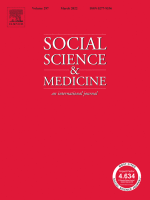
Michał Myck, WAP expert and Director of CenEA (Center for Economic Analysis, Poland), examine changes in the level of physical health using longitudinal data on people aged 50+ from nine European countries, developping a novel approach to identify age, period and cohort effects. Results raise questions concerning efficacy of healthcare and equal access to high quality care.
–
Trust and compliance to health measures in times of global pandemic
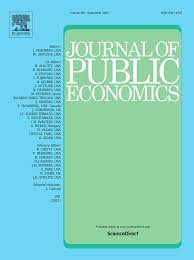
Olivier Bargain and Ulugbek Aminjonov, WAP experts and researchers at the Bordeaux School of Economics, use innovative data on human mobility and political trust at regional level in Europe to show that mobility during lockdown significantly depended on trust in governments. They quantify the impact of (the lack of) trust on the diffusion of COVID-19.
Labor market, poverty & inequality
Do fiscal systems encourage informal work in Latin America?

Xavier H. Jara, WAP expert and researcher at the London School of Economics, has collaborated with the Inter-American Development Bank to assess how tax and benefit systems in Latin American countries have an impact on the extent of informal employment.
Distributional impact of the COVID-19 crisis

Cathal O’Donoghue, currently the Dean of Arts and Social Sciences at NUI Galway, publishes an analysis on the dramatic impact of COVID‐19 on market incomes and the role of income‐support policies. “nowcasting” methods are used to assess the distributional implications of the crisis in Ireland.
Well-being
Terror, well-being and political choices

Recent research by Alpaslan Akay and Olivier Bargain, WAP experts and Professors at the Universities of Göteborg and Bordeaux, shows that terror events anywhere in the world affect the subjective well-being of Western citizens and tend to increase their intention to vote for conservative parties.
Comparison of well-being in European : a new approach

The well-being of our societies is too often measure by income or GDP per capita. Happiness or life satisfaction measures have been used more recently but covered only part of what is relevant in life. This research by Koen Decancq, WAP expert and Professor at the University of Antwerp, suggests a richer measure of well-being to compare European countries, leading to a remarkably different perspective from usual clichés.
–
Wellbeing in Belgium: Beyond Happiness and Income
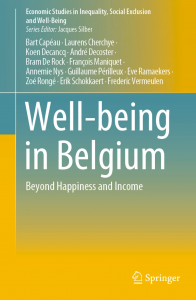
This book by Koen Decancq and coauthors provides a comprehensive overview of the distribution of well-being in Belgium based on an innovative and representative large-scale survey. It looks at the well-being of individuals in a way that goes beyond subjective measures of happiness. It offers tools for policymakers to evaluate social policies while taking into account different dimensions of life and respecting people’s different views on what is important. It shows that the people worst off in society are not necessarily those on low incomes or those who feel unhappy.



